- Home
- Jodi Picoult
Second Glance: A Novel Page 18
Second Glance: A Novel Read online
Page 18
She holds her smile in place. "They know I'm interested in their lives. People who look like me usually aren't. And that's exactly why they talk."
At one shanty, we stop, and Abigail raps on the support pole in lieu of a proper knocker. "Jeanne is expecting us," she says, and sure enough, the flap that serves as a door lifts open. A small woman not much older than Abigail hesitantly waves us inside, inviting us to sit down at a table that has been cleared.
The small home is a single room. A bucket near the door is filled with fresh water, and a stack of dirty plates and cups sits precariously balanced on the counter. But there is a sense that the place has been tidied for us, and that is the first note Abigail writes on her pad. "Jeanne," she says, offering a smile that does not reach her eyes. "I'm so happy to meet you. This is Mrs. Pike."
Jeanne's eyes don't rise above my abdomen. "Your first?"
"Yes."
"I have a child, too," Jeanne says intensely. "A boy."
"Yes," Abigail replies. "Your Aunt Louisa told me quite a lot about Norman."
"Oho," Jeanne answers, bobbing her head. "He was her favorite. She used to take him out when she went looking for plants in the woods--juniper and black spruce and bloodroot." Over Abigail's shoulder I see the words she is writing on her pad. Bobbed hair--skirt fastened with safety pins. Stockings are rolled below the knee. Seems distracted.
"Jeanne's son is in the Brandon School for the Feebleminded," Abigail explains to me. "Louisa said you received a letter from him, Jeanne."
This, at least, seems to brighten her up. As she hurries off to find it for us, Abigail leans closer. "The state was instrumental in having the boy taken away. When the social workers came, they found him sitting here, eating raw meat. Raw meat!"
A moment later Jeanne returns, proudly holding up the letter. "How old is Norman now?" Abigail asks.
"He'll be ten this October."
"Why don't you read me what he wrote?"
Jeanne falters, but only for a moment. She begins to stumble through the boy's convoluted handwriting, correcting herself as she goes along. Illiterate, Abigail writes. Mother and son. To Jeanne, she says, "Well, he sounds like quite the scholar!"
Jeanne's eyes soften, thinking she has found a friend in Abigail. "Missus Alcott, you work for the state . . . can you ask them when Norman will be brought back home?"
Suddenly I see why this woman has been so anxious to invite a stranger into her home. She wants to get as much information out of Abigail as Abigail is trying to get out of her. "If you'll excuse me," I say, "I'm just going to get some air."
I walk along, letting my boots sink into the soft mud. Boys play a game with a ball made of rags, the right angles of their bony arms rising against the blue of the sky as they reach for a neat catch. If I am to help Abigail, I should be asking questions. I should be learning as much about this family as I can.
An old woman sits with a pipe in her mouth at the entrance to a tent, her hands flying over a stack of reeds that begin to take the shape of a long-necked basket. I start to approach her with a smile on my face, only to have her raise her head. Although she doesn't speak or move a muscle, the look in her eyes is enough to make me change direction. Instead, I head toward a man who stands with his back to me, fishing. He casts and reels in with timing and grace, as if he is part of an elaborate dance. He wears trousers held up with suspenders, and his black hair reaches halfway down his back, making me sorry to have cut my own short in a fashionable bob.
Show interest in what they are doing; this was Abigail's first rule. "Hello." I walk all the way down to the water, and still he does not turn around. "I see you're fishing."
Brilliant, Lia, I think. And will you next tell him he's a Gypsy?
He turns around and unhooks a foot-long fish from a green-and-black plug. I realize this is the man I saw watching me at the Independence Day celebration. His eyes widen, and move over my face as if he has never seen someone like me before. Maybe he hasn't. Maybe Gypsies mingle with us as infrequently as we mingle with them.
Uncomfortable, I look down into the basket at his feet. It is full of writhing fish: smallmouth bass, which I recognize, and large needle-nosed speckled ones that I don't. "Hello," I say again, determined to put him at ease. "I'm Cissy Pike." I hold out my hand.
For a long moment he stares at it. Then he grabs on as if he were drowning. "N'wibgwigid Molsem," he murmurs.
Illiterate, that's what Abigail would write down. It strikes me, however, that it is not what I would write. "My name is Gray Wolf," he translates.
"You speak English!"
"Better than you speak Alnobak," he says.
He has not released my hand. Gently I pull away, clear my throat, and strike up a polite conversation. "Do you live here?"
"I live all over."
"Surely you have a house?"
"I have a tent." His eyes hold mine, just like they did in the Hall of Mirrors. "I don't need much."
Whatever civil discourse I have planned flies from my head. "I saw you," I hear myself say. "On the Fourth of July. You were following me."
"And today?" he asks. "Are you following me?"
"Oh, no. I didn't even know you were . . . that is, I came with Abigail Alcott."
At that, his face falls. He starts packing up his fishing gear, his back to me. "Then have you come to take away more of our boys to the industrial school? Or tell us we're going to hell because we pray in a different church? Or maybe to find out who got drunk in town and passed out on Church Street?"
His comments leave me speechless. I have spent my life hearing of Gypsies, but they are names on pedigree charts, not men who catch fish and whose skin is as warm as mine. "You don't even know me."
A shadow crosses over his face. "You're right," he admits. "I don't."
"Maybe I'm not just like Abigail."
We stand a foot apart. "And maybe I'm not just some Gypsy," he answers.
Words have built a wall between us, and I can think of no easy way to bring it down other than to remove it, brick by brick. So I point to the water. "What do you call that?"
"A lake."
"No," I repeat. "I mean, what do you call it?"
He looks at me carefully. "Pitawbagw."
"Pitawbagw." I point to the sun. "And this?"
"Kisos." Bending down, I pick up a handful of dirt. "Ki," Gray Wolf holds out his hand to help me to my feet. He gently touches his hand to my stomach. "Chijis. Baby."
"Mrs. Pike!"
From a distance up on the shore I hear Abigail calling for me. "Sounds like your ride is leaving," Gray Wolf says.
"Yes . . ." I shield my eyes from the sun, try to find Abigail, but can't.
"Better go. You wouldn't want to be stuck here overnight."
"No," I admit, and then realize what I've said. Cheeks reddening, I meet his gaze. "How do you say 'I'll return?'"
It is a challenge, and he accepts it. "N'pedgiji."
"Well, then. N'pegdiji."
He bursts into laughter. "You just told me you'll fart."
If possible, I blush even harder. "Thank you for the language lesson, Mr. Wolf."
"Wli nanawalmezi, Lia."
"What does that mean?"
He smiles slowly. "Take good care of yourself."
I hurry up the hill as best I can, lumbering under the weight of my baby. Chijis. On the drive home, I listen to Abigail tell me stories of second cousins who killed others in bar fights, of a rampant outbreak of venereal disease among a strain of Delacours. "Did you learn anything?" she asks finally, when she has run out of things to say.
How to speak their language. And maybe, how to listen. "Nothing you'd consider important," I reply, and am silent for the rest of the ride home.
John Delacour, aka Gray Wolf, is of particular notoriety even for this clan. He has a history of heavy drinking, sex offense, nomadism, and criminality, and has been known to change his name several times. He was arrested in 1913 for hitting a man over the head with a bric
k. In 1914, he was sent to prison for a murder conviction. There is mention from several relatives about his illegitimate children. John is an absolute liar and very evasive. For this reason it is absolutely impossible to get the truth out of him.
--From the files of Abigail Alcott,
Department of Public Welfare social worker
When I come home, Ruby is waiting at the door with her heart in her eyes, and Spencer is a step behind. "What the hell do you think you're doing?" he roars, slamming the door behind me. He grabs my upper arms so hard I know it will leave bruises.
"I can explain--"
"Explain this, Cissy. Explain why I got a call from my secretary saying that you'd been to the office to meet Abigail Alcott. Explain why my wife, who is seven months pregnant with my firstborn son, would be stupid enough to visit a state hospital for the insane where she could have been seriously hurt. And for Christ's sake, to be traipsing around some Gypsy camp--"
"It isn't some Gypsy camp, Spencer, and I'm fine." I try to pull away from him, but he will not let me go. "I wanted to see what it is that holds you and my father in so much thrall. Is that a sin?"
"You are in no condition to--"
"I'm pregnant, Spencer, not feebleminded."
"Is that so?" Spencer explodes. "Jesus Christ, Cissy, how can you expect me to trust you with your own judgment, when you try to kill yourself one night and the next day you're off at an insane asylum--"
"That's unfair," I say, my eyes stinging already.
"Unfair? Try imagining what it's like to sit here, thinking that your wife might be injured, or God forbid, killed by some lunatic. Abigail is trained to do what she does; you are not. And you will stay in this house, goddammit, until I tell you otherwise!"
"You can't do that to me."
"Can't I?" Spencer grabs my wrists hard enough to make me cry out. He pulls me up the stairs. The only room in the house that locks from the outside is our bedroom, and Spencer drags me into it. "I'm doing this for your own good."
"Whose good?" I challenge.
Spencer pales, as if I have slapped him. "Sometimes, Cissy," he whispers, "I don't know you."
My husband walks stiffly out of the bedroom. Inside me, the baby twines tighter. "I'm sorry," I whisper, and the only answer I receive is the sound of the lock being turned.
Q. Which counts for more, heredity or the environment?
A. They are interdependent. This question is almost the equivalent of "Which is more important, the seed or the soil?"
--American Eugenics Society,
A Eugenics Catechism, 1926
In the middle of the night the key turns. Even from here, I can smell the alcohol on Spencer. He slips into bed and presses his front to my back, "God, I love you," he says, the words settling over my skin like steam.
On our honeymoon, Spencer and I went to Niagara Falls. One night we camped out in a tent, and made love beneath the night sky. The water beat like my blood and when he moved inside me, I could swear that the stars connected in the shape of our initials.
Now Spencer pulls up the edge of my nightgown, fits himself between my thighs. We are both crying and pretending not to. When Spencer comes inside me he presses his wet face against my spine, and I imagine his features being branded there, a version of a death mask that will always be one step behind me.
He falls asleep with his arms around the breadth of my middle, hands not quite touching, as if he cannot contain me anymore.
I think we can safely say that in the sixty-two families we have studied . . . "blood has told," and there is every reason to believe it will keep right on "telling" in future generations.
--H. F. Perkins, Lessons from a Eugenical Survey of Vermont:
First Annual Report, 1927
Blood is raining from thunderclouds. Roses burst into bloom at midnight. Water doesn't boil; words slide from the pages of books. The sky is the wrong color. And as I walk through this strange world, the ground is frozen beneath my feet.
"Cissy. Cissy!"
Hands on my shoulders. Breath on my neck. "Spencer?" I say, my voice sanded and drowsy.
Gradually I become aware of the owls bearing witness in the trees, the mud on the heels of my feet and the edge of my nightgown, the summer night fermenting. I am in the woods behind our house, and I have no idea how I got here.
"You've been sleepwalking," Spencer explains.
Sleepwalking, yes, that's what it must be. And yet this other place I have visited . . . I feel as if I can still trail my fingers along its edge. Spencer embraces me, sighs against my skin. "Cissy, I only want you to be happy."
A small sob catches in my throat. "I know."
And I am a failure, to have all this--a good home, a healthy pregnancy, a man like Spencer--and still feel as if something is missing. "I love you," my husband says. "I've never loved anyone but you."
"I love you too," I tell him. I only wish it were that easy.
"Why don't we go back to bed," Spencer suggests, "and forget about all of this?"
Like we forget about everything else. Because when you don't admit out loud that something awful has happened, who is to say it ever did?
But habit holds me tight. So I nod, and follow Spencer back to the house. I keep looking over my shoulder; I cannot shake the feeling that there is something here for me to find. After we climb onto the porch, he holds the door open for me, wiping the slate clean.
It is not until I am in the bathroom, washing the dirt from my feet, that I realize I am clenching something in my left hand. I open my fist like a flower: soft and supple and honey-colored, these are the tiniest pair of moccasins I have ever seen.
SIX
August 21, 1932
From an exhibit at the Third International Eugenics Congress:
THIS LIGHT FLASHES EVERY 31 SECONDS. Every 31 seconds, State taxpayers paid $100 for maintenance only of Insane, Feebleminded, Epileptic, Blind and Deaf, in State Institutions, Only in 1927.
In the middle of the night there is a cramp low in my belly. It wakes me; it makes me look across the ocean of mattress to Spencer, who sleeps as if this hotel bed fits him. I try to ignore the teeth eating me from the inside out.
But then there is a ripping, and I am too shocked to even cry. I watch the blood soak the front of my nightgown and the cuspid that cuts like a knife. A scaled snout stretches through the hole it has made in my skin; then a clawed foot, a reptile belly, a tail. The alligator that finally hunches between my legs looks up and smiles.
"Miz Pike . . ."
It is the voice of someone who's come to watch me be devoured whole. The alligator's jaw ratchets shut on my thigh.
"Miz Pike . . . Lia!"
It is this, my secret name, which makes the alligator disappear. When I blink I see Ruby standing in front of me in her nightgown, and we are in the middle of the hall at the Plaza Hotel. Her eyes are as sad as a canyon. "You need to go back to bed."
I have been sleepwalking again. And Ruby has been keeping watch, as she was brought along on this trip to do. She leads me to our suite, opens the door, and averts her eyes from Spencer, who sleeps undisturbed in the bed. "No one ever gets a good night's rest away from home," Ruby whispers, bravely making excuses. She pulls back the covers and helps me settle, as if she is the elder between us.
I swallow hard and make my eyes adjust to the darkness. I keep my feet folded up beneath me, just in case that gator is still swimming beneath the sheets.
From the program of the Third International Eugenics Congress:
I: Introduction and Welcome: Dr. H. F. Perkins, President of the American Eugenics Society
II. "The Biological Screening of Immigrant Populations": Prof. Jap van Tysediik
III. "Prevention of the Collapse of Western Civilization": Dr. Roland Osterbrand
IV. "The Disappearance of the Old American: A Study in Human Race Improvement": Dr. Spencer A. Pike
The Third International Eugenics Congress has convened at New York's Museum of Natural Histo
ry, and I have been invited by default. Even with my father attending the event, and Spencer the featured speaker, I might have been allowed to stay home and fend for myself, if not for the fact that mere weeks ago I had taken a blade to my skin, and gotten myself in trouble with Abigail Alcott.
We are sitting near the lecture hall, in a room that has been converted into a private lounge for the bigwigs at the conference. Spencer is getting ready for his presentation; my father reads the program notes. Ruby is quiet as a ghost in one corner, her lips moving silently as she knits.
We are the only ones left; the others have gone out to give their presentations, or to join the audience. So far we have met the pioneer of Michigan's sterilization program, and a Cuban physiologist who blessed me in his mother tongue and said it was the duty of gifted women like myself to rescue the world by having more children. A New York physician who smelled of garlic spent an hour with Spencer, arguing about the annual expense of caring for the offspring of two feebleminded families ($2 million) versus the one-time cost of sterilizing the parents ($150).
I peel an orange and watch through the window as visitors to the museum hurry up the stone steps. A man loses his hat in the wind, and it blows into the arms of a panhandler. A toddler sits down on a step three-quarters of the way up and begins to kick her feet with such force that her panties show, pink as a rose petal. And my father and husband argue about what, exactly, Spencer should cover in his presentation.
"I don't know, Harry," Spencer says, pacing around a long chart unrolled like a hound's tongue across the floor. "We've backed away from the pedigrees in the past year."
Spencer's shoe brushes the edge of the pedigree chart. It is a long genetic octopus, a family tree with arms and legs that tangle and cross, as do those of most degenerate families. Spotted throughout are symbols, keyed on the side. A dark black circle signifies Insane. A hollow circle means Feebleminded. Black squares for those who were sent to reform school, white squares for those who were sexual offenders. This particular chart is as dotted as a leopard.
Professor Pike made the decision to stop heralding the pedigree charts as the main thrust of the Vermont eugenics movement when he, Spencer, and my father were sitting at dinner and realized that three influential swing-voting members of the legislature had unwittingly showed up on their charts, descended from some of the most degenerate families in the state. Even the lieutenant governor was linked to one notorious family by marriage. They agreed to focus instead on the best way to encourage the Old Vermont stock to reproduce, and set up another subdivision of the VCCL-- the Committee for the Handicapped--to do the dirty work, advocating legislation to prevent these people from marrying and breeding. This way, any controversy that swirled over the Sterilization Bill would not be associated with the three of them, personally.

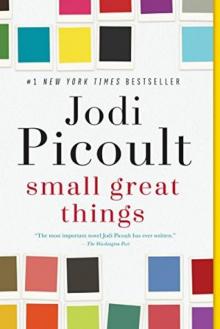 Small Great Things
Small Great Things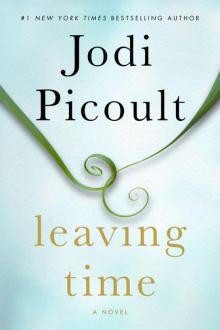 Leaving Time
Leaving Time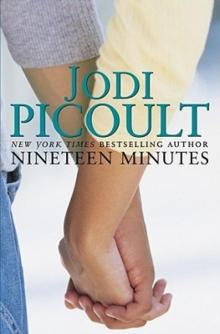 Nineteen Minutes
Nineteen Minutes Larger Than Life
Larger Than Life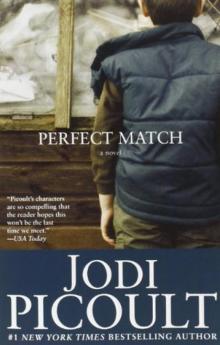 Perfect Match
Perfect Match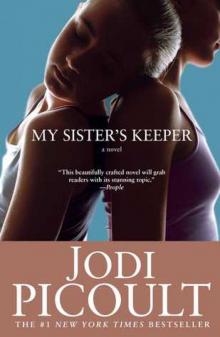 My Sister's Keeper
My Sister's Keeper The Pact
The Pact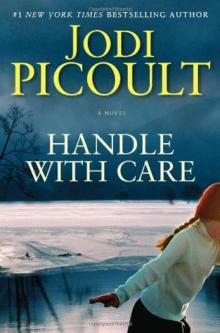 Handle With Care
Handle With Care Songs of the Humpback Whale
Songs of the Humpback Whale Mermaid
Mermaid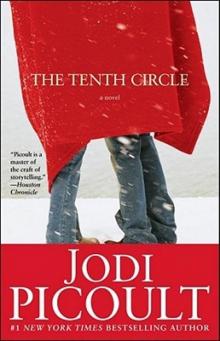 The Tenth Circle
The Tenth Circle The Color War
The Color War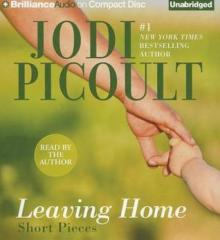 Leaving Home: Short Pieces
Leaving Home: Short Pieces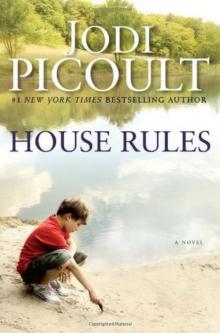 House Rules
House Rules Lone Wolf
Lone Wolf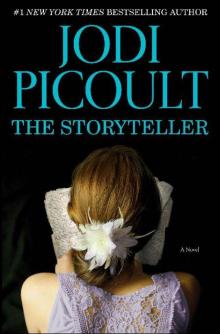 The Storyteller
The Storyteller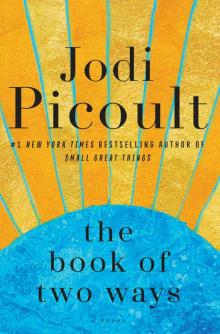 The Book of Two Ways
The Book of Two Ways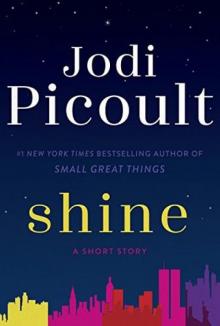 Shine
Shine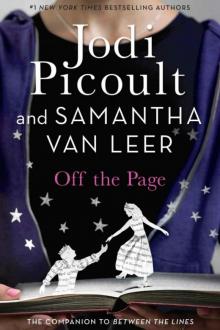 Off the Page
Off the Page Sing You Home
Sing You Home Second Glance: A Novel
Second Glance: A Novel Mercy
Mercy Vanishing Acts
Vanishing Acts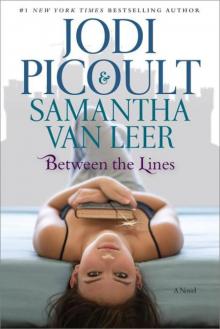 Between the Lines
Between the Lines Plain Truth
Plain Truth Salem Falls
Salem Falls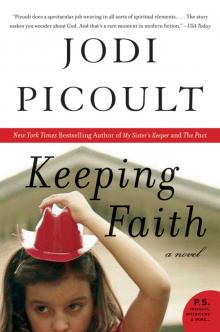 Keeping Faith
Keeping Faith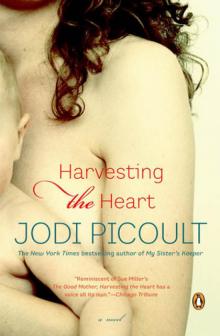 Harvesting the Heart
Harvesting the Heart Change of Heart
Change of Heart Where There's Smoke
Where There's Smoke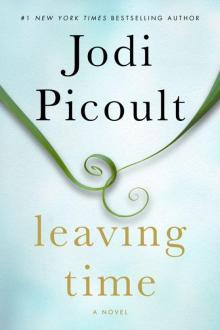 Leaving Time: A Novel
Leaving Time: A Novel Over the Moon
Over the Moon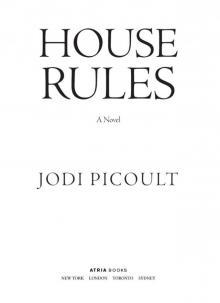 House Rules: A Novel
House Rules: A Novel The Jodi Picoult Collection #2
The Jodi Picoult Collection #2 Leaving Home: Short Pieces (Kindle Single)
Leaving Home: Short Pieces (Kindle Single)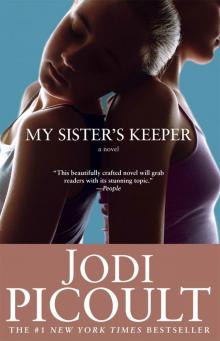 My Sister's Keeper: A Novel
My Sister's Keeper: A Novel![Mermaid [Kindle in Motion] (Kindle Single) Read online](http://i1.bookreadfree.com/i1/04/03/mermaid_kindle_in_motion_kindle_single_preview.jpg) Mermaid [Kindle in Motion] (Kindle Single)
Mermaid [Kindle in Motion] (Kindle Single)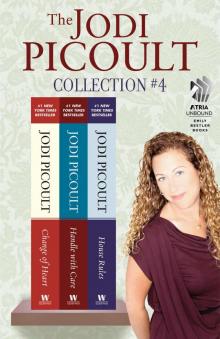 The Jodi Picoult Collection #4
The Jodi Picoult Collection #4 Sing You Home: A Novel
Sing You Home: A Novel The Jodi Picoult Collection
The Jodi Picoult Collection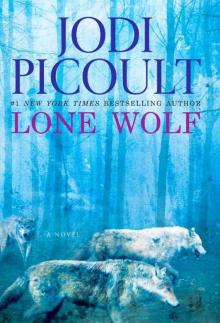 Lone Wolf A Novel
Lone Wolf A Novel Second Glance
Second Glance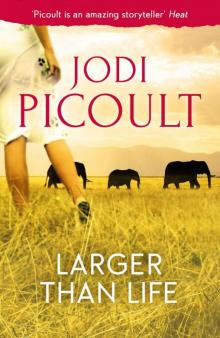 Larger Than Life (Novella)
Larger Than Life (Novella) The Jodi Picoult Collection #3
The Jodi Picoult Collection #3